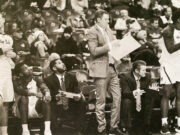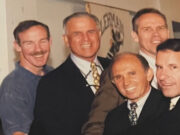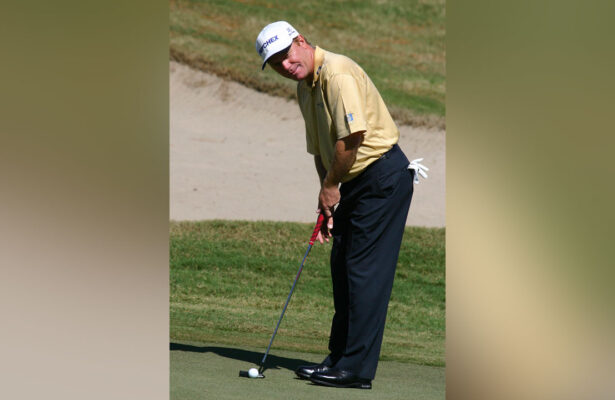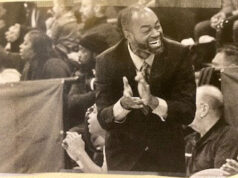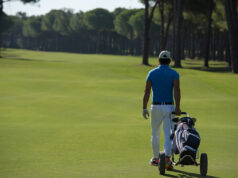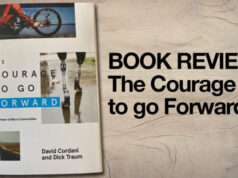With Paul Schienberg, PhD
At The 2007 Bob Hope Pro-Am Dessert Classic
Jesper Parnevik hit an extremely large number of golf balls with one club. He was clearly trying to work out something that he didn’t like in the morning practice round. Jesper looked frustrated with each shot, even though from this amateur golfer’s point of view, they seemed to be flying beautifully. At some point, Jeff Sluman, who was practicing at the next driving range tee, came over to where Parnevik was swinging. They talked and laughed. It seemed to break the ice surrounding Jesper’s head. Parnevik loosened up as the two men were gabbing. It was evident that there was a long standing camaraderie between them.
I got an opportunity to ask Jeff Sluman about the interaction between him and Jesper. “Did you give him some needed advice?” Sluman shook his head and said, “No. You can’t talk to Jesper about his game. He won’t listen. I just get him to relax by making him laugh. You see, his father was a comedian and he loves to laugh. It takes the pressure off of his game and he plays better. I’ve known him a long time and I see when he’s getting twisted up.”
Schienberg: “Yes, I can see you are good friends. While I’ve got you, I’d like to ask you about the mental aspects of your game?
Jeff Sluman: Sure. Give it a shot. I’m not a deep thinker.
Schienberg: How have you changed emotionally while playing golf?
Jeff Sluman: I’m a much more relaxed player today. It’s become my personality. I had been a fiery guy when I was young. I’d get frustrated; loose my cool and my stroke. Now, I concentrate on being calm. It does not take any effort now to remain tranquil even when things don’t go so right on the course. It just didn’t help my game nor did I like being that person who lost control and got so upset.
Schienberg: What do you think about re-doing golf swings?
Jeff Sluman: I don’t think it is a great idea to do major changes in a golf swing. Every player has the swing that fits his makeup – both physically and mentally. A tweak here or there is one thing, but it is more likely to create bigger problems if large changes are undertaken. I’ve known more players to get injured and screw their brains around when they change their swing so much. If things are not going well for me, it usually means that I’m not following my pre-shot routine – even if I think I am. So, I become more diligent about it.
Schienberg: Tiger’s not here. How does it affect you?
Sluman: Not very much.
Schienberg: Let me put it differently. What’s it like to play with Tiger?
Sluman: Well, let me put it this way. Tiger is focusing on Tiger. He’s not interested in what you are doing. He is totally focused on himself and his play. I try to do the same thing, but it is very different with him in my pairing. It is almost impossible to ignore what he is doing. In part, it is his personality, charm, complete composure and ability to make remarkable shots. It’s like you just feel compelled to be a spectator even though you are playing the game


